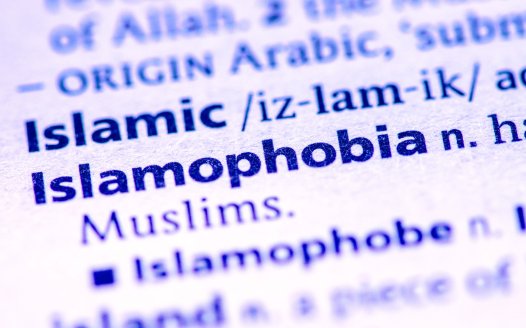Ditch ‘stirring up’ offences in hate crime bill, say NSS and others
Posted: Mon, 24th Aug 2020
The National Secular Society and others have told Scotland's justice secretary of "grave reservations" over the inclusion of 'stirring up hatred' offences in the Scottish government's current hate crime bill.
The NSS is among members of the Free to Disagree campaign who signed a letter to Humza Yousaf last Friday, urging him to abandon the relevant part of the bill.
The current drafting of part two of the bill would see people convicted of an offence if their behaviour is judged "threatening or abusive" and intended or "likely" to stir up hatred.
'Outpouring of anxiety'
The letter said the "outpouring of anxiety" about part two had been "overwhelming" in recent months, citing objections from a wide variety of groups and from across the political spectrum.
It noted concerns over the fact there is no requirement to prove intent for a conviction, and over the inclusion of the word "abusive" alongside "threatening".
It also criticised the absence of "suitably robust free speech clauses" and noted the "difficulty of defining" hatred to a criminal law standard.
The NSS raised very similar concerns in its submission to a recent consultation held by the Scottish parliament's justice committee.
Necessity of new offences is unclear
The letter added that it was unclear why the new stirring up offences are necessary, and noted an incongruity between a memorandum accompanying the bill and a statement from Yousaf in parliament.
The memo says the conduct affected "would already constitute existing criminal offences". But in parliament last week Yousaf said the bill would ensure "sufficient protection is provided" and he would "make sure that the bill is effective".
The letter said: "Either the bill extends the reach of the criminal law or it does not. Of course, the reality is that Part 2 does, indeed, extend the reach of the law – and extends it far too much."
It urged the minister to "bolster the implementation of laws already on the statute book" rather than introducing "wide-ranging and unpredictable stirring-up laws".
And it added that other aspects of the bill would "achieve broad support" if part two were abandoned. A separate part of the bill would allow for tougher sentences to be imposed when crimes are motivated by bigotry.
Polling suggests public disquiet over bill
Meanwhile, polling commissioned by Free to Disagree has suggested there are significant levels of public opposition to the crucial parts of the bill in Scotland.
The poll, which was carried out by Sevanta ComRes, found:
- 69% of Scots agreed that "for a criminal offence to be committed, there must be a proven intention to stir up hatred".
- 75% of respondents thought the term "hatred" means "different things to different people".
- 87% thought free speech is an "important right".
- 63% thought disagreement and debate "benefit society".
- 73% agreed that disagreement is not a sign of hatred.
NSS comment
NSS chief executive Stephen Evans, who signed the letter on the society's behalf, said ministers should now "radically rethink this piece of legislation".
"The vaguely drafted section of the bill on 'stirring up hatred' presents a significant threat to freedom of expression. It's faced criticism from a very wide range of groups and now appears to be very unpopular with the Scottish public.
"Ministers should now either remove the relevant section of the bill or radically amend it to place a much greater premium on free speech."
Signs of a possible compromise
Earlier this month Yousaf said he would give "serious consideration" to a warning from a coalition of public figures that the bill would undermine free expression.
Update, 28 August - further relevant developments this week
The first minister Nicola Sturgeon faced questions about the bill in parliament this week, as Labour MSP James Kelly highlighted concerns about freedom of expression.
You can watch the exchange on Free to Disagree's Facebook page, and read more about it in a press release from the campaign.
Meanwhile Free to Disagree has also criticised ministers for using the existence of 'stirring up hatred' offences elsewhere in the UK to justify the bill.
The NSS and others have repeatedly highlighted several significant ways in which Scotland's bill would be more censorious than equivalent legislation in England and Wales.
Protect free speech in Scotland
New hate crime laws proposed for Scotland could seriously undermine freedom of expression - including the freedom to criticise or satirise religion. Find out more and help us protect free speech.








